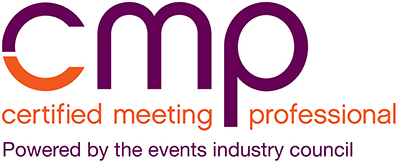How Educational Programmes in Universities can be applied to Event Design
![]() Print this Article | Send to Colleague
Print this Article | Send to Colleague
By Gérard Réus, Head of MSc, Strategic Event Management & Tourism Management, SKEMA Business School
Which trends do you see in university educational programmes that could be applied to event design?
University programmes prepare professional managers to understand the challenges of globalisation, the importance of the customer experience, and give them the technical skills and knowledge required to be effective leaders in the Meeting Industry. The teaching methodology has changed now and combines more real-life practice with contemporary management theory.
More specifically in event design, graduates will be able to: create unique customer experiences and anticipate upcoming challenges and innovation, apply managerial, financial, and marketing knowledge as well as sustainable, crisis and risk management techniques to the industry, and focus on data analytics, revenue management strategies, service and an innovative approach. Students are also trained to pass the AgilePM® project management certification by Agile Business Consortium.
With the AgilePM® method, organisations and users are involved daily in the design and delivery of a solution that really meets the need. Finally, students are enlightened on the contemporary challenges and opportunities of Artificial Intelligence (AI). This allows them to simulate and create more efficient events by analysing databases to generate new information with AI techniques for business (data mining).
How is sustainability being incorporated into the curriculum for university programmes?
In an age in which environmental and social issues are top priorities for many people, companies must have a strong corporate social responsibility strategy. One primary focus of corporate social responsibility is the environment. Thus, all businesses and especially events and tourism businesses must adopt sustainable practices. The aim is to train responsible managers who master the tools of sustainable development and have a comprehensive understanding of environmental issues. All areas and levels of the economy are impacted by environmental and societal responsibility.
Courses focus on both science and business; that is on our society's impact on the environment and the management choices available to reduce this impact. These are perfect for students who wish to work in the field of sustainable development for a better tomorrow. Students must acquire knowledge and develop their critical thinking on the mechanisms of individual and social behaviour, management, regulations, and laws in the face of global challenges. They must develop a forward-looking vision of the ecological and social transition. For example, they establish a sustainable future scenario on a specific theme (destination, accommodation, F&B, technology, fundraising, etc.), based on courses related to business models and strategic management. Students must also be committed to the safeguarding of the planet, protection of personal data, and essential ethical issues. They will help the struggle against climate change by becoming facilitators of the collaborative Climate Fresk, a workshop that teaches the fundamental science behind climate change and empowers people to act sustainably in the event and tourism industries.
Your programme has a focus on Strategic Events Management. How is this defined, and what are ways that business events can be leveraged for greater strategic value?
Globalisation, the digital revolution, and changes in consumer behaviour are forcing businesses to reinvent their future. Organisations are modifying their business models and accelerating their processes to grow up. They must be more customer-centric, digital, agile, and sustainable than ever before. These challenges are opportunities that require innovation, efficiency, and transformational thinking. Students learn to be mobile, multicultural, agile, and aware of new societal challenges while possessing entrepreneurial and managerial capabilities.
For example, a course gives students direct experience in working on research, planning, or development/marketing projects, in close contact with professionals. Students learn to deliver comprehensive, actionable, and flexible marketing plans and strategies that can be understood and supported by senior management.
Another course trains on the recognition that an understanding of the differences between the concepts of policy and strategy supports effective managerial decision-making in many areas of operation of a tourism or event company or organisation. A course about scenario planning examines what long-term changes might occur in the event industry to understand the effect these changes might have. This method anticipates the future, identifying uncertainties and their consequences. Different scenarios address potential developments and their expected impact on event businesses, institutions, and destinations, which can use this information to create policies and design strategies.
When it comes to strategic value, there is growing recognition among marketing specialists that - in business markets - value creation is more driven by relationship development than sales revenue increase. Business events are the best creator of social links that allow individuals to exchange in unexpected and effective ways. Before creating financial or human capital, organisations should create relational capital. In our more and more uncertain world (VUCA), future benefits are not guaranteed, and organisations seek to protect themselves from unfavourable outcomes. This situation offers opportunities to create value for customers by reducing perceptions of downside risk using marketing communications platforms as business events. Both factors - relationship development and risk reduction - ensure that business events can be used for a greater strategic value for organisations.

